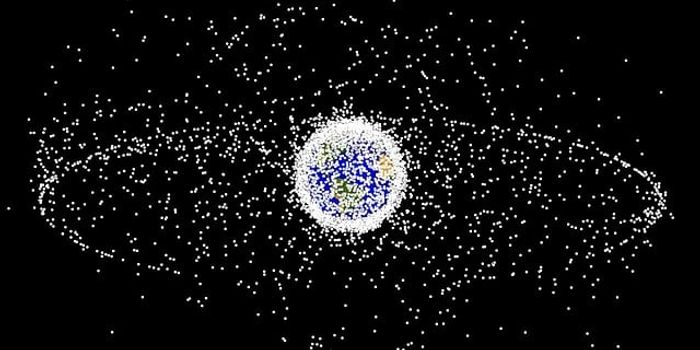MPs Call for End to Grocery Plastic Packaging by 2023, Draw Attention to World Plastic Crisis
Following up on a January 2018 report from The Guardian that major UK supermarkets produce about 1.8 billion pounds (about 800,000 tonnes) of plastic waste each year, hundreds of members of parliament (MPs) have called for the stores to phase out all plastic packaging by 2023. The stores Aldi, Lidl, Morrisons, Asda, Budgens, Tesco, Sainsbury’s, Waitrose and Marks & Spencer were addressed in the joint letter from 200 MPs across seven political groups. There are currently 650 total MPs.
Waitrose recently committed to getting rid of all black plastic on its products by 2019. Black plastic is not currently recyclable in the UK. Iceland had committed to stop using plastic to wrap its own products by 2023.
“We have a moral duty to tackle this disposable culture. As such, I welcome the recent announcement from Iceland supermarkets … and I’m delighted that MPs from all parties are supporting my call for other retailers to follow suit,” says Labour MP Catherine West of Hornsey and Wood Green, who was a driving force behind the recent environmental call-to-action.
When Eunomia environmental consultants carried out the supermarket-plastics analysis that The Guardian covered in early 2018, only two stores – Aldi and the Co-op – had public plastic figures they would share. The group used these stats and the market share of the other companies to come up with an estimate of how much the leading stores produced together each year. The estimated 1.8 billion pounds is more than half of the amount of household plastic waste created in the UK annually: 1.5 million tonnes or 3.3 billion pounds.
Prime Minister Theresa May called for the establishment of plastic free-aisles in early 2018 and expressed a commitment to reduce plastic waste by 2042.
“We know that the government can act on Britain’s plastics crisis a lot sooner than before 2042,” responded Shadow Environment Secretary Sue Hayman.
According to National Geographic, between about 1950 and 2015, 6.3 billion tonnes (about 13.9 trillion pounds) of the 8.3 billion tonnes (about 18.3 trillion pounds) of plastic that was produced became plastic waste. About 12 percent of it has been incinerated and 79 percent is in landfills or nature; so, 91 percent has not been recycled. Plastic can take hundreds of years to break down.
The global estimate for yearly plastic production is at 661.5 trillion pounds or 300 million tonnes, and is expected to continue to rise significantly during the next decade. China announced in late 2017 it would stop accepting other countries’ plastic trash as of Jan. 1, leaving many nations scrambling to process their own excess waste.
“We weren’t aware of the implications for plastic ending up in our environment until it was already there. Now we have a situation where we have to come from behind to catch up,” Environmental Engineer Jenna Jambeck of the University of Georgia says. She studies the plastic waste in Earth’s oceans. Approximately 8 million tonnes (about 17.6 billion pounds) of plastic end up in the oceans each year.









